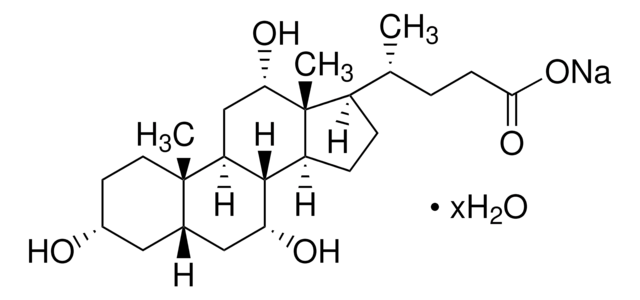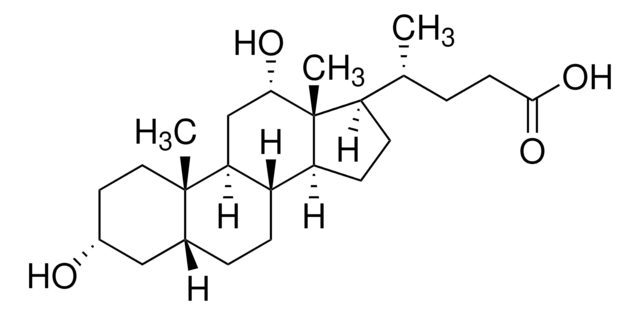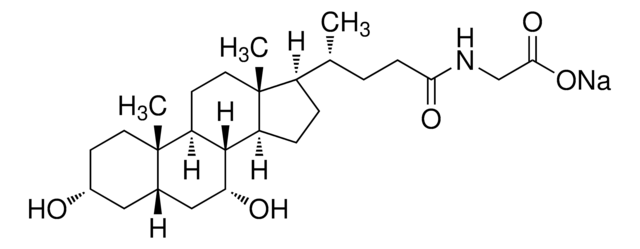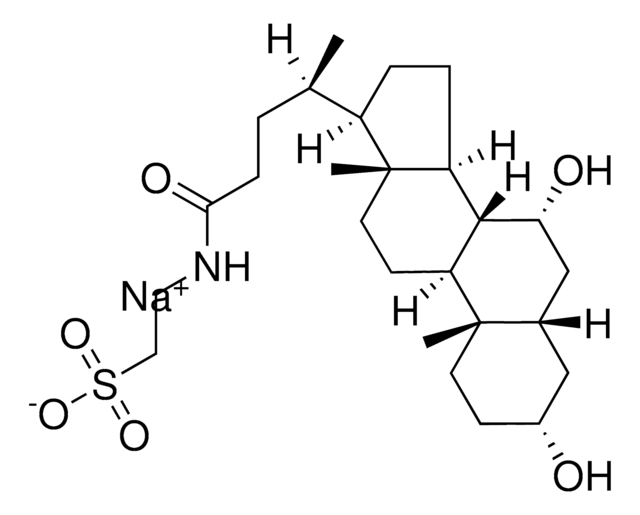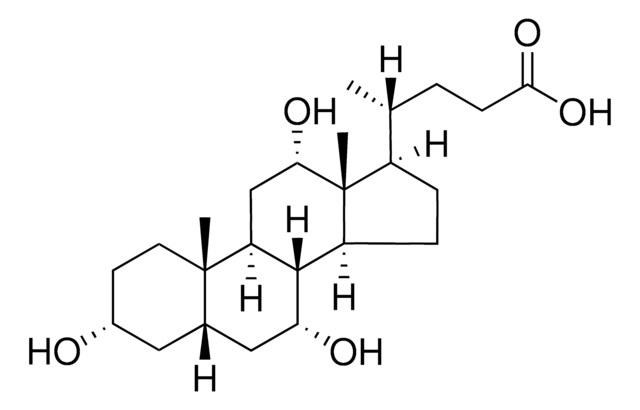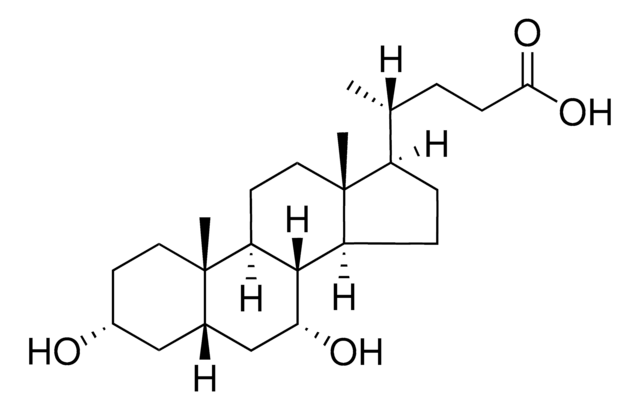C8261
Sodium chenodeoxycholate
≥97%
Synonyme(s) :
3α,7α-Dihydroxy-5β-cholanic acid, 5β-Cholanic acid-3α,7α-diol, Chenodeoxycholic acid sodium salt, Chenodesoxycholic acid, Chenodiol
About This Item
Produits recommandés
Description
anionic
Essai
≥97%
Forme
powder
Poids mol.
414.55 g/mol
Technique(s)
protein purification: suitable
Chaîne SMILES
[Na].[H][C@@]12C[C@H](O)CC[C@]1(C)[C@@]3([H])CC[C@]4(C)[C@]([H])(CC[C@@]4([H])[C@]3([H])[C@H](O)C2)[C@H](C)CCC(O)=O
InChI
1S/C24H40O4.Na.H/c1-14(4-7-21(27)28)17-5-6-18-22-19(9-11-24(17,18)3)23(2)10-8-16(25)12-15(23)13-20(22)26;;/h14-20,22,25-26H,4-13H2,1-3H3,(H,27,28);;/t14-,15+,16-,17-,18+,19+,20-,22+,23+,24-;;/m1../s1
Clé InChI
WANBNZVOEKGHSS-VQNKLXGESA-N
Description générale
Application
Actions biochimiques/physiologiques
Mention d'avertissement
Danger
Mentions de danger
Conseils de prudence
Classification des risques
Acute Tox. 3 Oral - Repr. 2
Code de la classe de stockage
6.1C - Combustible acute toxic Cat.3 / toxic compounds or compounds which causing chronic effects
Classe de danger pour l'eau (WGK)
WGK 3
Faites votre choix parmi les versions les plus récentes :
Déjà en possession de ce produit ?
Retrouvez la documentation relative aux produits que vous avez récemment achetés dans la Bibliothèque de documents.
Les clients ont également consulté
Articles
probiotics-and-human
Today, diverse studies report the benefits of probiotics, such as inhibitory effects on pathogens, aid in the management or prevention of chronic intestinal inflammatory diseases or atopic syndromes, and support to the immune system. Potential beneficial applications abound, researchers continue to evaluate the effictiveness and clarify the mechanisms of action of probiotics.
Notre équipe de scientifiques dispose d'une expérience dans tous les secteurs de la recherche, notamment en sciences de la vie, science des matériaux, synthèse chimique, chromatographie, analyse et dans de nombreux autres domaines..
Contacter notre Service technique

